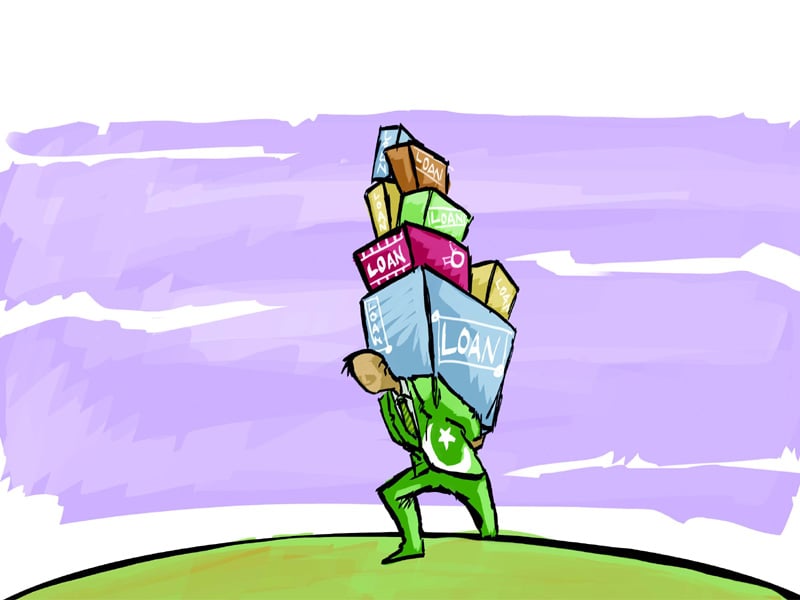
So addicted is the government to borrowed money that it has virtually sucked the life out of the private sector’s ability to borrow. After the banks are done lending to the government, there is nothing left to lend out to businesses and entrepreneurs to invest, create jobs and lift people out of poverty. The vicious cycle of inflation driving more and more people into poverty continues. The only way out of this crisis is for the government to simultaneously reduce its expenses and raise tax revenues. But alas, the current administration appears to have taken action on neither front. It has been repeated ad nauseum, but it is worth saying again: the government of Pakistan has done a woefully inadequate job of trying to tax the country’s wealthy, a point that has been made bluntly and loudly by virtually every observer of the nation’s finances. The IMF recently took to calling upon the government to remove the privileges, both de jure and those that exist in practice, that benefit the wealthiest of our citizens. It really should not take a lender based in Washington for Islamabad to figure out that the rich in Pakistan are not pulling their weight when it comes to paying taxes.
Published in The Express Tribune, November 8th, 2013.
Like Opinion & Editorial on Facebook, follow @ETOpEd on Twitter to receive all updates on all our daily pieces.
COMMENTS (3)
Comments are moderated and generally will be posted if they are on-topic and not abusive.
For more information, please see our Comments FAQ












@Parvez Amin:
Unfair to say that the present government is responsible for the mess. However, what is true is that the "new" government has shown great ability in making the mess worse.
I agree the rich must be asked to pay towards government expenses in form of taxes. We all know that. But another step should be to freeze unnecessary spending while you assess the problem and make plans to eliminate debt. Cutting spending can come in many forms. But comes to mind is that those items which can be considered luxury should not be imported. My wife was in pakistan last week and told me that all those things which poor do not need are seen in abundance in the markets. Things lie breakfast cereals, cosmetics,automobiles, non productive industrial goods are easily available and they are import items which increase foreign exchange debt. So on one hand the rich avoid paying taxes and then also burden the exchange of already weak currency. Another aspects is that rich travel abroad fairly regularly taking the hard earned foreign currency. Just walk in Oxford street in London on any summer day and you encounter well dressed Pakistanis doing shopping. I am not against putting total restrictions, but a law which does not allow unlimited currency flight on regular basis.
The annual cost of one MNA is about Rs 3-crore 25-lacs. This is the estimated cost to the taxpayer. It is too much. MNAs should set an example and take the first step: cut their remuneration down to not more than Rs 10,000 per day. Usage of electricity in private government offices should cost the taxpayer a fixed amount, with the excess deducted from the occupant's salary. Each official should be restricted to one car to take him to office and back. The official's children should not be allowed to use officially provided cars. Wastage of taxpayer's money is clearly visible. Who is going to cut it? The Finance Minister. Who else? Will he do it? Ask him! Any bets as to whether he will or not? I say ten to one, he will not. Does his performance on merit justify his staying on as Finance Minister? Let him answer. Does he have plans to get us out of the mess he is responsible for? May we see them? I demand a clear response. Will I get one? NO. I THINK MY DEMAND WILL BE IGNORED.